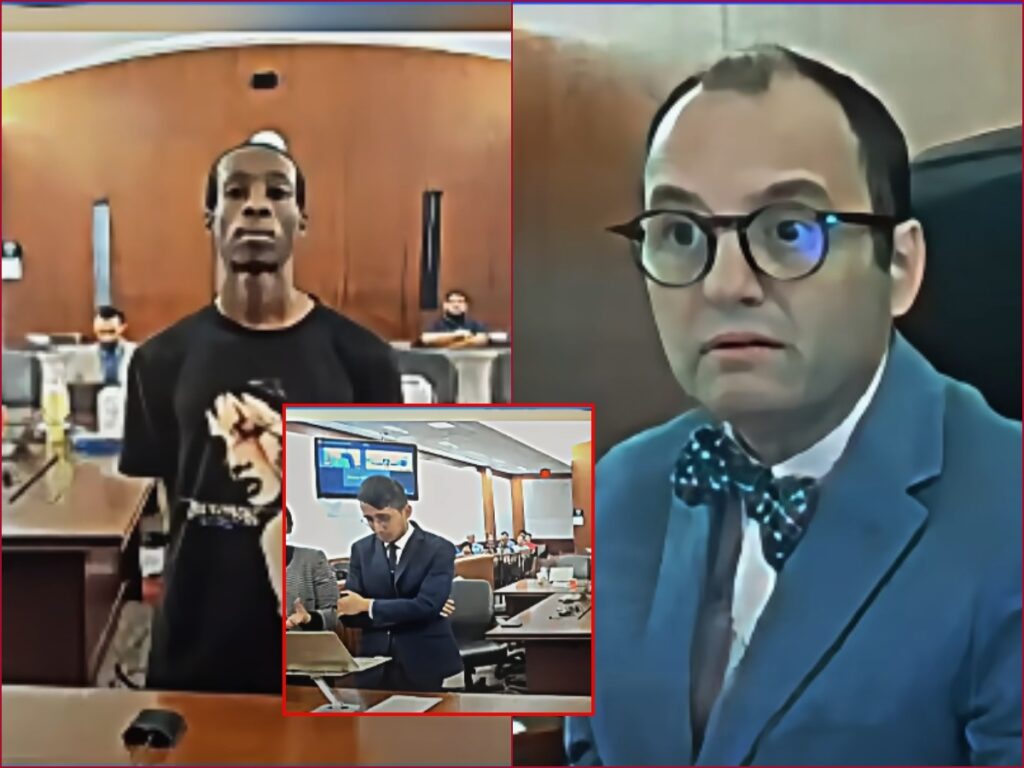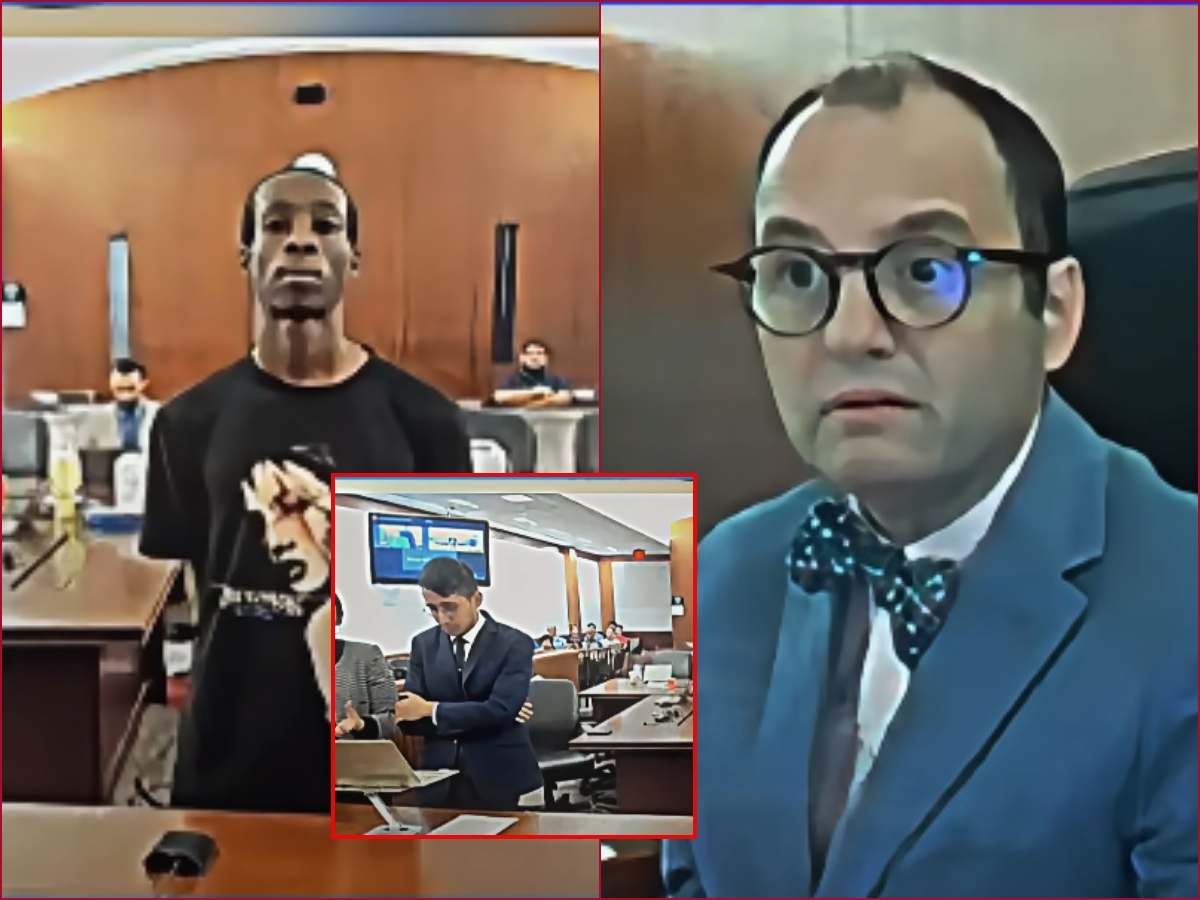A Harris County courtroom became the stage for an extraordinary moment of judicial scrutiny this week when a Texas judge rejected a state prosecutor’s attempt to bring an interference with public duties charge against a motorist, ruling there was “no probable cause” to proceed.
The case, captured in a video shared on Judge Fleischer Chronicles’ Facebook page, has since gone viral—earning praise from legal professionals and civil rights advocates who saw it as a rare but necessary example of a judge demanding concrete evidence rather than conclusions.
The Case in Question

According to the state’s account, the defendant, identified as Mr. McLean, was stopped by an officer in Harris County for allegedly exceeding the 45 mph speed limit and making an unsafe lane change. The officer stated that McLean failed to produce a driver’s license but verbally identified himself.
While the officer was checking his information, McLean reportedly stepped out of his car—prompting the officer to order him back inside. When McLean asked, “Do I have to?” the officer attempted to detain him. Prosecutors claimed McLean “tensed up and locked his arms,” an act they said constituted interference with the duties of a public servant.
The charge carries a penalty of up to six months in jail and a $2,000 fine under Texas Penal Code §38.15.
“Everything Is Conclusory”
However, when the case came before the bench, the presiding judge—believed to be Judge Fleischer, whose courtroom moments often draw public attention online—was unimpressed by the prosecution’s argument.
“Everything is conclusory. What has he done wrong?” the judge asked, interrupting the state’s presentation.
When the prosecutor tried to justify the initial traffic stop by referencing the defendant’s speed, the judge pressed further: “How fast was he going?”
Unable to specify, the state called a second prosecutor, who claimed the officer had been “pacing” the defendant. The judge interjected again:
“Okay, in a what? In a what? If it’s on 610… he’s interference duties? What is he interfering with?”
As prosecutors stumbled through their explanation, the judge appeared unconvinced.
“And that’s the basis of arrest?” he asked pointedly before concluding, “No, I don’t think so. Find no probable cause.”
Before dismissing the case, the judge offered a brief word of caution to the defendant:
“Just be careful out there, man. Life’s hard enough as it is. People always after you. Be nice—it’s not hard.”
Legal and Ethical Implications
The case may seem minor, but its implications are anything but. In legal circles, the interference with public duties statute has long been criticized for its broad wording, which can allow routine encounters with police to escalate into criminal charges based on subjective interpretations of “interference.”
Legal experts note that the judge’s decision reflects a growing judicial concern about the misuse of such statutes to penalize noncompliance or verbal resistance rather than actual obstruction.
“This is exactly what probable cause hearings are designed to prevent—criminalizing conduct that does not meet statutory thresholds,” said one Houston-based defense attorney. “Simply asking a question like ‘Do I have to?’ should never be grounds for arrest.”
The exchange also highlights the importance of judicial independence at the local level. In many lower courts, where dockets are heavy and hearings brief, probable cause determinations can become perfunctory. Judge Fleischer’s insistence on specific, articulable facts represents the kind of rigorous oversight that ensures the state meets its burden before citizens are subjected to prosecution.
A Viral Lesson in Civics
The clip’s spread online—under the caption “Judge wasn’t buying the State’s story”—has reignited debate over how quickly some routine traffic stops can devolve into criminal cases. For many viewers, it was a rare look at a judge calling out weak evidence in real time.
It also served as a subtle reminder of the enduring principle at the core of the American justice system:
“All persons are innocent until proven guilty.”
In an era where citizens’ encounters with police are increasingly recorded, this moment—both sobering and human—underscored a simple truth: courtroom accountability still matters.

